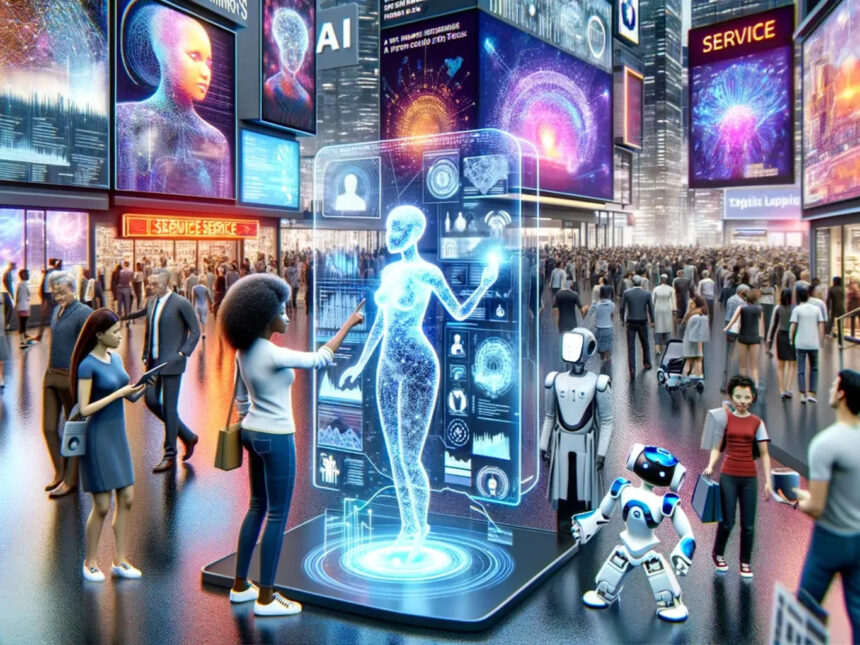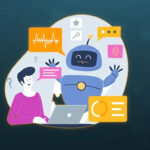Artificial Intelligence (AI) has emerged as one of the crucial transformative applied sciences of the twenty first century. From powering voice assistants and self-driving vehicles to revolutionizing healthcare and training, AI is reshaping each side of human society. While its potential is huge, so too are the challenges and implications it brings. This article explores the multifaceted affect of AI on human society, highlighting its advantages, challenges, and the moral concerns it raises.
The Positive Impacts of AI
-
Enhancing Efficiency and Productivity
AI is revolutionizing industries by automating repetitive duties, optimizing processes, and enabling data-driven decision-making. In manufacturing, for instance, robots powered by AI carry out precision duties at speeds unmatched by human staff. In agriculture, AI-driven drones and analytics assist optimize crop yields and cut back useful resource waste. By dealing with routine work, AI frees up human potential for creativity and strategic considering. -
Advancing Healthcare
In the medical subject, AI is proving to be a game-changer. Algorithms can analyze huge quantities of medical information to detect illnesses resembling most cancers at earlier levels than conventional strategies. AI-powered robots help in surgical procedures with unmatched precision, whereas telemedicine platforms present customized care to sufferers in distant areas. These developments not solely save lives but additionally make healthcare extra accessible and inexpensive. -
Improving Education
AI is personalizing training by tailoring studying experiences to particular person wants. Intelligent tutoring techniques assess a scholar’s strengths and weaknesses, adapting classes accordingly. AI-powered instruments like language translation and speech recognition are breaking down language limitations, enabling training to succeed in a world viewers. Such improvements are making studying extra inclusive and environment friendly. -
Driving Economic Growth
The integration of AI into companies has spurred financial progress. By analyzing market traits and client conduct, AI helps firms innovate and stay aggressive. Startups leveraging AI applied sciences are disrupting conventional enterprise fashions, creating new industries and job alternatives within the course of. The financial advantages are simple, although in addition they include sure challenges.
Challenges and Risks of AI
-
Job Displacement
While AI creates alternatives, it additionally disrupts conventional job markets. Automation threatens jobs in sectors like manufacturing, retail, and transportation. For occasion, self-driving autos may render thousands and thousands of truck and taxi drivers redundant. This displacement underscores the necessity for reskilling applications and insurance policies to mitigate the affect on staff. -
Bias and Fairness
AI techniques are solely as unbiased as the info they’re skilled on. When information displays societal biases, AI can perpetuate and even amplify these inequalities. Examples embrace biased hiring algorithms or facial recognition techniques that carry out poorly on sure demographics. Ensuring equity in AI techniques is a important problem that calls for transparency and accountability. -
Privacy Concerns
AI depends closely on information, elevating vital privateness points. From monitoring on-line conduct to analyzing private well being data, the potential misuse of information poses threats to particular person privateness. Striking a steadiness between leveraging information for innovation and defending customers’ privateness is an ongoing problem. -
Ethical Dilemmas
AI raises profound moral questions. Autonomous weapons, for instance, problem conventional notions of accountability in warfare. Similarly, choices made by AI in important areas like healthcare or legal justice pose ethical dilemmas about belief and accountability. Developing moral tips for AI utilization is important to deal with these considerations.
Societal Transformations
-
Changing Workplaces
AI is reshaping the character of labor. Collaborative AI instruments are enhancing productiveness by augmenting human capabilities, resulting in the rise of hybrid work environments. However, the workforce should adapt by buying expertise in AI and associated fields. Lifelong studying will change into a necessity quite than an choice. -
Redefining Human Interaction
AI-driven applied sciences are influencing how individuals work together. Virtual assistants, chatbots, and social media algorithms have change into integral components of each day life. While these instruments improve comfort, in addition they increase considerations in regards to the erosion of real human connections and the manipulation of knowledge. -
Influence on Governance
Governments worldwide are adopting AI for policy-making, public providers, and nationwide safety. AI can enhance city planning, catastrophe response, and useful resource allocation. However, it additionally raises considerations about surveillance and the potential misuse of AI for authoritarian management. Ensuring democratic oversight of AI applied sciences is crucial. -
Global Inequalities
The advantages of AI will not be evenly distributed. Wealthier nations and firms usually dominate AI growth, leaving poorer areas at a drawback. Bridging this hole requires worldwide cooperation, investments in digital infrastructure, and the democratization of AI instruments.
Ethical and Regulatory Considerations
To harness AI’s potential whereas mitigating its dangers, sturdy moral frameworks and regulatory measures are essential. Policymakers, technologists, and ethicists should collaborate to determine requirements for AI growth and deployment. Key areas for consideration embrace:
-
Transparency: AI techniques must be explainable, permitting customers to know how choices are made.
-
Accountability: Clear strains of accountability should be established for AI-driven choices.
-
Inclusivity: Diverse voices should be included in AI design to make sure equity and cut back bias.
-
Sustainability: The environmental affect of AI, resembling vitality consumption in coaching fashions, should be addressed.
The Future of AI and Humanity
The trajectory of AI will profoundly affect the way forward for humanity. As it integrates deeper into our lives, society faces a twin problem: maximizing AI’s advantages whereas minimizing its dangers. Education techniques should prioritize digital literacy and ethics to arrange future generations. Governments and organizations should foster collaboration to make sure AI serves the widespread good.
Ultimately, AI isn’t just a technological evolution however a societal transformation. Its affect might be decided by the alternatives humanity makes right now. By approaching AI with foresight and accountability, we are able to guarantee it turns into a power for constructive change, driving progress whereas upholding human values.










